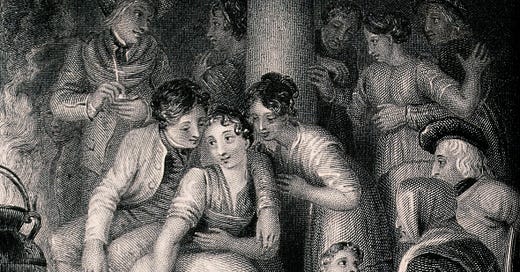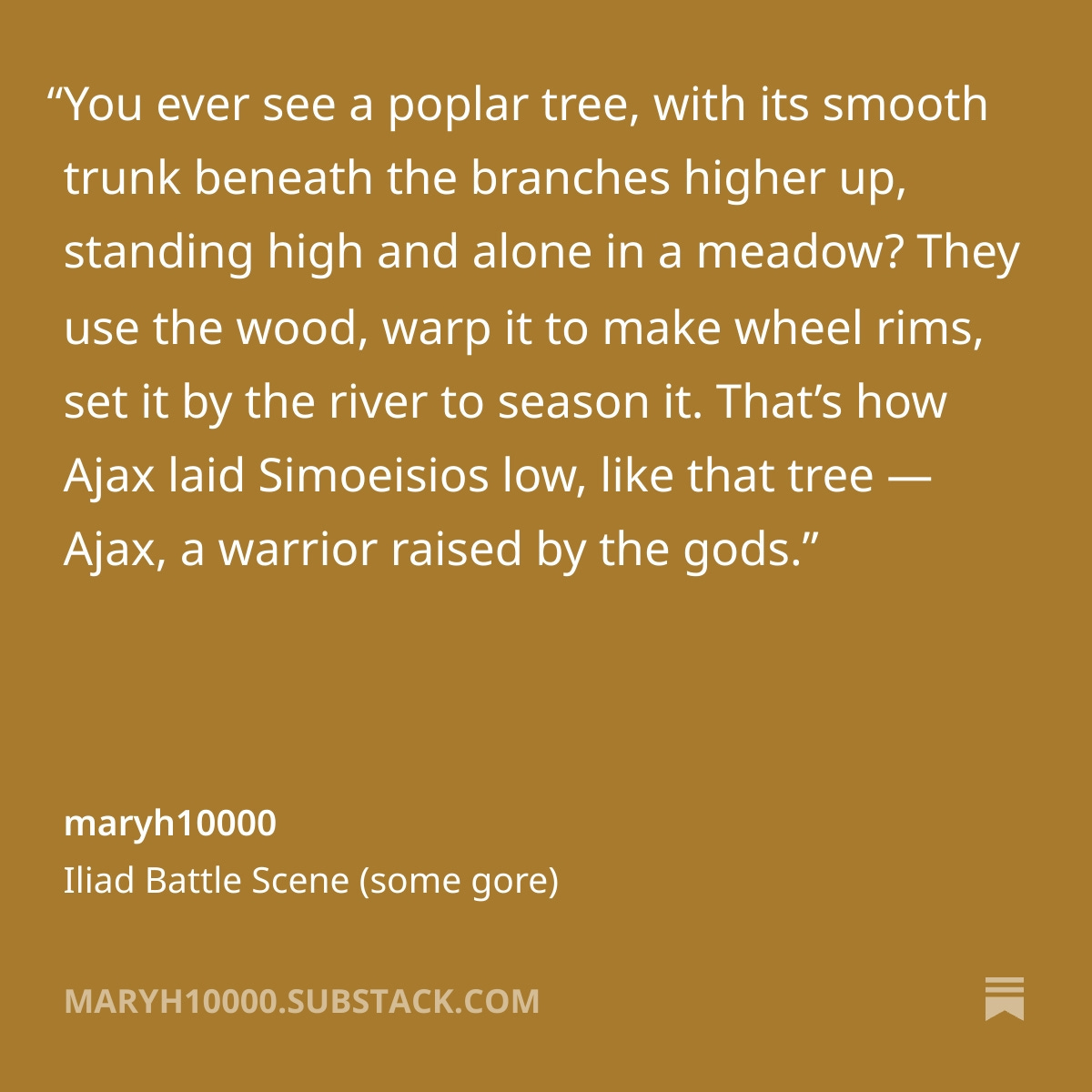In Book XVI, when Patroclos starts his heroic mania, caused by Zeus, instead of turning back as Achilles had told him to do, I’m seeing just a simple listing of names of the slain. Up to now, they were sometimes given without kinship, battle info, kind of death, or metaphor, or other reference, but not in a list this long. Patroclos kills Adrestos, Autonoos, Ekhelklos, Perimos Megades, Eristor, Melanippos, Elasos, Moulios and Pylartes. Although some of these names are mentioned elsewhere, they can’t refer to those men for other reasons (most commonly, because they were killed by someone else).
This is different from what I’ve seen so far.
As I read the Iliad, I am constantly struck with how much knowledge is assumed on the part of the audience. What look to us like boring lists of names frequently point to other stories that those names would have brought to mind. You may have noticed that I like to focus in on those stories.
It makes me think of hyperlinks and modern fictional series with their huge casts of characters. Just as we know the back story of the Black Widow, who sometimes takes center stage and other times fades into the background, so probably did the Iliad’s audience know other stories about Dolon or Briseis …
Over and over, the story of the death of a warrior includes at least a reference to kin, usually a father or older male ancestor, but sometimes a mother, or both parents, or siblings. The killing and wounds will also be described in detail. Sometimes, there will even be line after line of vivid metaphor to describe how the fighter fell.
The descriptions of the deaths are oddly detailed and realistic. Despite the formulas and the symbolism, it is hard not to think that they come from soldiers or witnesses to these kinds of wounds and these kinds of deaths. Did the details come from the bard singing the song of the fall of Troy, and hearing the details of the deaths of real soldiers, kept alive by the mourning traditions of real families? And then fitting them into the formulas of heroic poetry?1
A Wheelwrights Death?
The metaphors and images used for the way the soldiers fell is also oddly detailed and realistic. Book IV of the Iliad compares the fall of Simoeisios to a poplar tree cut down by a chariot-maker to make wheel rims by warping the wood and putting it next to the river. If that’s completely formulaic, it’s really, really detailed. I searched and found a youtube video showing an old man who still makes wheel rims out of wood like that. This makes me think of mourners talking about what the dead man, or perhaps the men of his family, actually did before he went to fight.
And I don’t see any reason that these descriptions can’t be both formulaic and symbolic, and also based on real people. Why couldn’t the bard start with a formulaic tree metaphor and adapt it for a man who was a wheelwright, or came from such a family?
My crude translation:
For comparison:
Robert Fitzgerald: free verse
A poplar growing in bottom lands, in a great meadow, smooth-trunked, high up to its sheath of boughs, will fall before the chariot-builder’s ax of shining iron – timber that he marked for warping into chariot tire rims – and seasoning, it lies beside the river. So vanquished by the god-reared Ajax lay Simoeisios Anthemides.
Samuel Butler: prose
and he fell as a poplar that has grown straight and tall in a meadow by some mere, and its top is thick with branches. Then the wheelwright lays his axe to its roots that he may fashion a felloe for the wheel of some goodly chariot, and it lies seasoning by the waterside. In such wise did Ajax fell to earth Simoeisius, son of Anthemion.
Alexander Pope: heroic verse
So falls a poplar, that in watery ground Raised high the head, with stately branches crown’d, (Fell’d by some artist with his shining steel, To shape the circle of the bending wheel,) Cut down it lies, tall, smooth, and largely spread, With all its beauteous honours on its head There, left a subject to the wind and rain, And scorch’d by suns, it withers on the plain Thus pierced by Ajax, Simoisius lies Stretch’d on the shore, and thus neglected dies.
I’m influenced here by “The Mourner’s Song”, a book by James Tatum, which I have not finished reading yet.







On the same names, there is always the possibility known as -- "Homer nods."